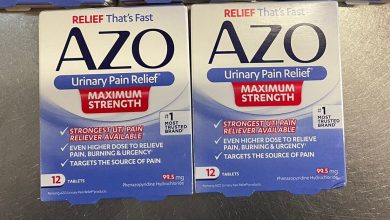Can You Take Excedrin While Pregnant?

Pregnancy is an awe-inspiring and often challenging journey that women embark on, characterized by a myriad of physical discomforts and aches. The profound transformation that a woman’s body undergoes during pregnancy is marked by both joy and discomfort. These physical discomforts can range from common symptoms like morning sickness and back pain to more severe ones, such as headaches or migraines. For many expectant mothers, these headaches can be particularly distressing, as they can significantly impact their daily lives and overall well-being.
The prevalence of headaches during pregnancy varies, but it is estimated that a significant percentage of pregnant women experience headaches at some point. The exact numbers may differ depending on the study and population being examined. There are different types of headaches that can occur during pregnancy. These can include tension headaches, migraines, and pregnancy-specific headaches, such as preeclampsia-related headaches, which can be a sign of a serious medical condition.
Hormonal changes during pregnancy, particularly the increase in estrogen and progesterone levels, can also play a role in triggering or exacerbating headaches in some women leading many women to question whether they can turn to over-the-counter pain relievers like Excedrin to alleviate their pain.
In this article, we will explore the use of Excedrin during pregnancy and discuss alternative options to manage pain while ensuring the safety of both the mother and the baby.

What is Excedrin?
Excedrin is a popular over-the-counter medication that contains a combination of active ingredients: acetaminophen, aspirin, and caffeine. These ingredients work together to provide relief from various types of headaches, including tension headaches and migraines. However, the safety of these ingredients during pregnancy is a subject of concern.
Types of Excedrin Products and Their Key Ingredients
| Product Name | Use | Key Ingredients |
| Excedrin Extra Strength | Pain relief | – Acetaminophen (250 mg) |
| – Aspirin (250 mg) | ||
| – Caffeine (65 mg) | ||
| Excedrin Migraine | Migraine relief | – Acetaminophen (250 mg) |
| – Aspirin (250 mg) | ||
| – Caffeine (65 mg) | ||
| Excedrin Tension Headache | Tension headache relief | – Acetaminophen (500 mg) |
| – Caffeine (65 mg) | ||
| (Neck and shoulder pain) | ||
| Excedrin PM Headache | Nighttime headache relief | – Acetaminophen (500 mg) |
| – Diphenhydramine citrate (38 mg) | ||
| – Caffeine (30 mg) |
Can You Take Excedrin While Pregnant?
During pregnancy, many substances that are typically safe become a cause for caution, as they may potentially harm the developing fetus. Excedrin contains aspirin and caffeine, both of which can pose risks during pregnancy:
1. Aspirin: Aspirin, a nonsteroidal anti-inflammatory drug (NSAID), can have negative effects on the developing baby when taken in high doses or for an extended period. It may increase the risk of bleeding, miscarriage, and can affect the baby’s heart and blood flow.
2. Caffeine: While moderate caffeine consumption is generally considered safe during pregnancy, excessive intake may lead to complications. High caffeine intake has been associated with an increased risk of miscarriage and preterm birth.
Due to these potential risks, it is advisable to avoid Excedrin during pregnancy, particularly if you are in the first or third trimester when the risks of aspirin and caffeine may be higher. Consult your healthcare provider before taking any medication, as they can provide individualized advice based on your specific situation.
Alternatives for Pain Relief During Pregnancy
When experiencing headaches or other types of pain during pregnancy, there are safer alternatives to Excedrin that you can consider:
1. Acetaminophen: Acetaminophen (Tylenol) is generally considered safe for use during pregnancy when taken as directed. It is often recommended as the first-line pain reliever for pregnant women. However, it’s essential to use it in moderation and only as advised by a healthcare professional.
2. Non-Pharmacological Methods: Many non-pharmacological methods can help alleviate pain during pregnancy. These include relaxation techniques, warm compresses, massages, and staying hydrated. A healthy lifestyle that includes regular exercise and a balanced diet can also help prevent headaches and other common discomforts.
3. Consult Your Healthcare Provider: If your pain persists or is severe, it’s crucial to seek advice from your healthcare provider. They can determine the underlying cause of your pain and recommend the safest and most effective treatment.
Conclusion
Pregnancy is a time when the health and safety of both the mother and the developing baby are paramount. While Excedrin is a popular pain reliever for headaches, it is not the best choice during pregnancy due to the potential risks associated with aspirin and caffeine. Instead, consult your healthcare provider for guidance on safe and effective alternatives, and always follow their recommendations for pain relief while expecting. Remember that the well-being of both you and your baby is the ultimate priority during this important time in your life.





